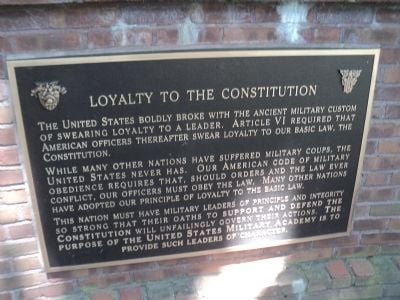Quick Thoughts on Making National Security Arguments in Court
This post is an outline of a few thoughts (written quickly, so please read accordingly) on making national security arguments, following the government's oral argument made last evening in State of Washington & State of Minnesota v. Trump and a cursory review of the filings made in that case.
This post is an outline of a few thoughts (written quickly, so please read accordingly) on making national security arguments, following the government's oral argument made last evening in State of Washington & State of Minnesota v. Trump and a cursory review of the filings made in that case.
It strikes me that there is a major difference between the national security arguments being made in this case by the government in support of the legal argument that the Executive Order is lawful than how the government usually has made national security arguments. I have in mind the way in which the government has made national security arguments in (Foreign Intelligence Surveillance Court) FISA matters, but also in how Classified Information Procedures Act (CIPA) and state secrets cases are handled.
In short, notwithstanding the President's inherent authority as commander in chief, arguments made by the government that rely on national security grounds are usually supported by the considered and expert views of a senior ranking national security official. Routine matters brought before the Foreign Intelligence Surveillance Court (FISC), for example, are generally supported by a certification as to foreign intelligence purpose by the FBI Director, Deputy Director or other senior ranking national security official, such as the Director of National Intelligence (DNI). Similarly, certifications under Section 702 of FISA are approved jointly by the DNI and Attorney General. In short, the court with the most national security experience, the FISC, does not simply rely on broad assertions from government lawyers that the President has deemed a requested authority important for national security reasons. Instead, the government presents detailed facts and arguments, under oath from a senior government national security officials, that the required legal authority is necessary or relevant to national security. (The necessary vs. relevant standard depends on whether the target is a U.S. person or non-U.S. person. And, notably, under FISA, U.S. persons include permanent resident aliens.)
In other litigation contexts that go before federal district or appellate courts, like the use of CIPA or, in civil litigation, the assertion of the state secrets privilege, government arguments that matters must remain classified are also generally supported by declarations of a senior national security executive, like the DNI. Here again, whether a court is determining whether to accept government arguments that information must remain classified, or whether a court is determining that a matter may be litigated or not, a court does not accept a mere assertion in the name of national security. Factual declarations regarding harm to national security officials are presented and filed with the court.
In all of these matters, generally speaking, important cases involving national security that require high level declarations of fact and national security impact, for example, a declaration by a DNI, are the product of professional intelligence products. These types of documents often require considerable interagency coordination.
In this case, the factual declaration that is in the record is one of a bipartisan group of former national security officials who argue that the executive order is not only not helpful to national security but, in their view, is actually harmful. Some of these officials were recipients of intelligence briefings as recently as last month. The government, meanwhile, appears to rely solely on a broad assertion by the President that the order is intended to protect national security. While that authority is certainly within the purview of the institutional office of the President, it seems complicated by the fact that this particular President has an extensive public record of making assertions unsupported by actual facts. Moreover, the credibility is further called into question since this President has only received a limited number of intelligence briefings since he has only been in office several weeks, and, according to public reports, received less than the usual amount of intelligence briefings during the transition. These awkward facts lend towards an argument that in this particular case, a court's determination that the order is a lawful exercise of national security authority might need to rely more than usual on factual declarations presented by senior national security officials.
Moreover, credibility of government national security arguments before courts is not a matter to be taken lightly. Former Attorney General Michael Mukasey wrote on this topic in a letter to the New York Police Department Commissioner almost a decade ago during a particularly tense legal disagreement between the Justice Department and NYPD on the standards under which matters should be presented to the FISC. Mukasey had argued at the time that the quality of facts presented to the FISC mattered because the department's credibility with the court was an important factor in it being able to protect national security and keep the nation safe. The gist of the exchange was that the government needed to be careful about making accurate assertions regarding national security, lest the court lose confidence in the government's intentions.
All of which is to say, this case, so far, is a very unusual assertion of national security legal argument.


.png?sfvrsn=48e6afb0_5)


